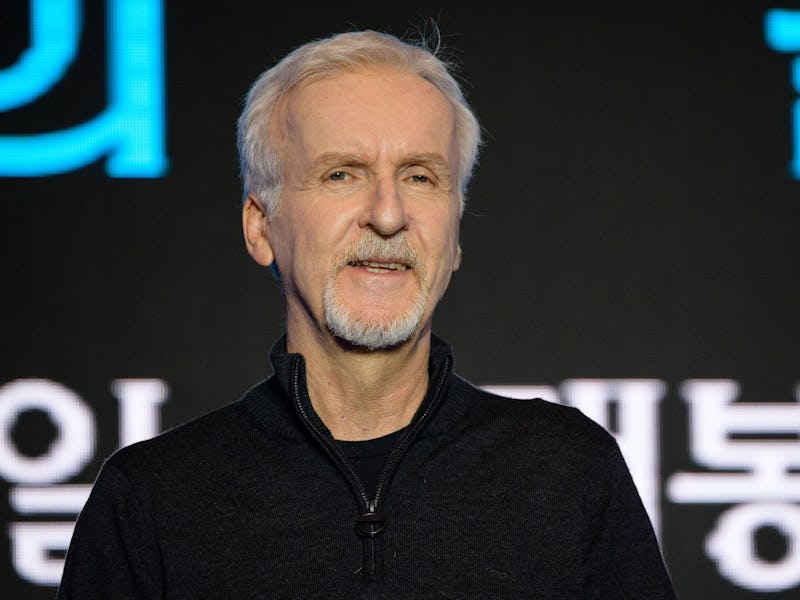30 years ago, James Cameron wrote a wild Spider-Man movie — and almost changed Marvel forever
The Aliens and Avatar auteur had an... interesting take on Peter Parker.

The Marvel Cinematic Universe is currently enchanted by the multiverse. Loki, What If...?, and Doctor Strange in the Multiverse of Madness let Marvel explore the concept in a variety of ways, but it’s almost unanimously accepted among fans that the most exciting MCU multiverse moment was when Tom Holland’s Spider-Man was joined by Andrew Garfield’s and Tobey Maguire’s in Spider-Man: No Way Home.
But in another version of our world, a fourth and older Spider-Man would have joined the ranks. And he would have been played by Leonardo DiCaprio, in a throwback to a movie written and directed by James Cameron.
The tale of James Cameron’s Spider-Man stretches back to the ‘80s, when Stan Lee was willing to option the character’s rights to renowned B-movie machine Cannon Films. The project floundered until the early 1990s, when Carolco Pictures bought the rights and hired James Cameron (then working on True Lies) to write, direct and produce.
Cameron submitted a 50-page “scriptment” (half script, half treatment) to Carolco describing his vision. It leaked online, and concept art was recently released as part of the book Tech Noir: The Art of James Cameron. Together, they form a vision completely different from the three Peter Parker incarnations we’ve seen in live-action.
The film would have shown Peter getting bitten by a radioactive spider, gaining organic web-shooters (but making fake mechanical shooters to not freak out the public), and reckoning with the fact that while he gained the powers of a spider, he also gained their predatory bloodthirstiness.
During a climactic fight atop the World Trade Center, the villainous Carlton Strand (aka Electro) tells Peter, “Spiders are predators. They kill to live. They are not hampered by humanitarian ideals or impeded in their lethal efficiency by delusions of morality.” The movie would have been rated R thanks to frequent profanity and a graphic sex scene between Peter and MJ on the Brooklyn Bridge that featured a lengthy discussion of spider mating rituals. So, enjoy that image.
The movie never came together because of financial and legal troubles related to the complex history of Spider-Man’s rights, but if it had happened, it would have changed the entire trajectory of superhero movies as we know it.
Instead, James Cameron would have to wait for Avatar 2 to portray a teenage Spider.
Though some elements of Cameron’s script are familiar to fans of Sam Raimi’s first Spider-Man movie, the treatment is far more reminiscent of Christopher Nolan’s Dark Knight trilogy. Had Cameron’s Spider-Man predated 21st-century superhero movies, it would have been the first retort to the goofiness of ‘80s and ‘90s takes like Tim Burton’s Batman, making Nolan’s films a continuation rather than a rebellion.
What’s more, the Marvel Cinematic Universe would have had an entirely new baseline. Much of what would become the Marvel movie format, especially the combination of humor and flashy action, is reflected in Raimi’s Spider-Man. If the initial take on a big-screen Marvel hero was profane, dark, and gritty, the MCU might have looked more like the Netflix Defenders universe than the squeaky-clean Disney-fied franchise that’s so wildly successful today.
James Cameron’s vision for Spider-Man was equally corny and brilliant. There’s no telling how — or even if — it would have changed the world of Marvel movies, but alternate universes are always fun to think about.